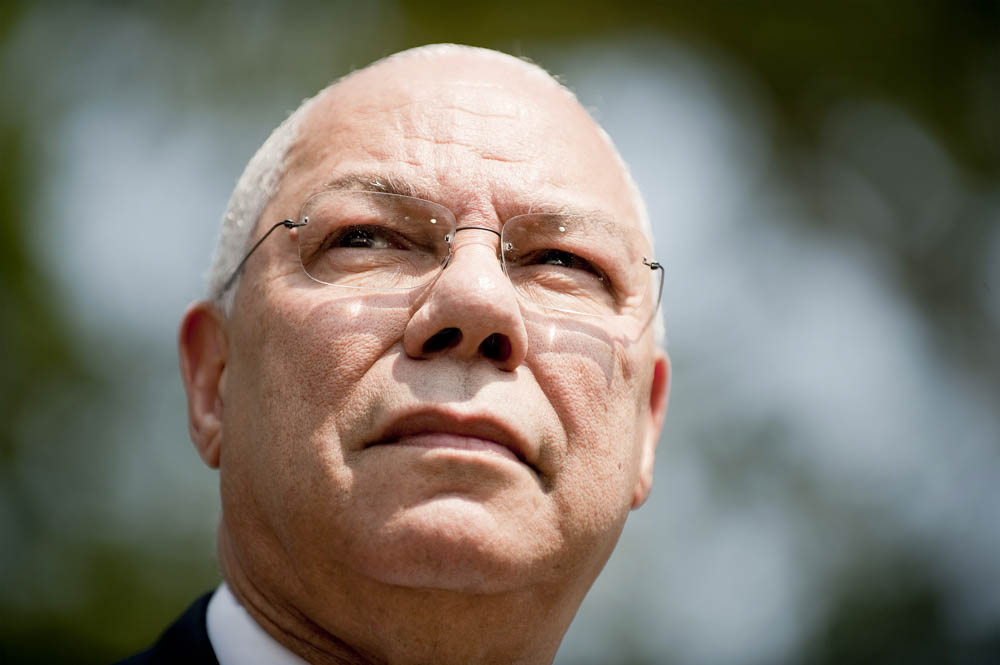By Daniel Rose
The outpouring of acknowledgments of the singular roles Colin Powell played in American life has focused primarily on his career in government and the military, and these were indeed notable. Years from now, however, when he is seen in a clearer perspective, his most important contribution will likely be his formidable positive impact on the lives of young Americans from deprived backgrounds.
“There are no secrets to success. It is the result of preparation, hard work, and learning from failure” this admired and respected hero proclaimed repeatedly, in speeches, books, and interviews. “Average people win by putting in above-average effort” was another mantra, as was “To achieve excellence in big things you achieve the habit in little matters. Excellence is not an exception; it is a prevailing attitude.” Another frequent statement was, “Disappointments, failures, and setbacks are a normal part of life; they must be faced and overcome.” And in his 1994 Commencement Address at Howard University he famously said, “Our black heritage must be a foundation stone we can build on, not a place to withdraw into.”
Born in 1937 to Jamaican working-class parents who emigrated to Harlem in New York City, he spent most of his childhood in the multi-ethnic Hunts Point area of the South Bronx, which was seen as a step up from segregated Harlem. Hunts Point at the time was heavily Jewish, with Irish, Polish, Italian, Hispanic, and black families. Minutes from his home were a Jewish bakery, a Puerto Rican grocery store, an Italian shoe repair shop, and a Chinese hand laundry. To earn pocket money, he worked after school at Sickser’s toy and baby-furniture store, where he learned to speak Yiddish.
Attending local public schools with Caucasians, Latinos, and Asians as well as black fellow students was stimulating; and as he wrote in his memoirs, he did not feel “like a minority, since there was no majority.”
A bright but happy-go-lucky youngster with little interest in elementary school academics, he was encouraged by his parents and the example of neighbors to value education and the professional careers it permitted as the alternative to a life of degrading ill-paying unskilled labor. On finishing Morris High School, he enrolled in CCNY in 1954 as an engineering student majoring in geology (in which, he wrote, he had no interest whatsoever). When introduced by a friend to CCNY’s ROTC (Reserve Officers Training Corps), Powell said, “It was love at first sight. The discipline, the structure, the camaraderie, the sense of belonging were what I craved. Race, color, background, income meant nothing. The PR (Pershing Rifles Squad) would go to the limit for each other and for the group. If this was what soldiering was all about, I wanted to be a soldier.”
And what a soldier! From Second Lieutenant in 1958 to four-star General in 1989, he went on to serve as Chairman of the Joint Chiefs of Staff (the military’s highest post) from 1989 to 1993, when he retired. (On a personal note, I was one of those actively encouraging him in 1993 to run for the Presidency. His wife, Alma, was strongly opposed – she feared he would be assassinated, which would be terrible for American blacks – and he followed her demands).
On his retirement in 1993, ColinPowell founded America’s Promise Alliance, the remarkable organization to help at-risk children, and he founded at CCNY the Colin PowellSchool for Civic and Global Leadership. His character and devotion were reflected in CCNY’s proud statement that he never missed a Powell School graduation and that he made it a point to shake the hand of every student who earned a degree.
Powell’s military career transcended race. He was fully aware that it was only in 1948 that President Harry Truman ended segregation in the armed forces, after which Powell thought that the military displayed “less discrimination, a truer merit system and a leveler playing field” than the public at large. The Army, he said, enabled him to “love my country, with all its flaws, and to serve her with all my heart.” He was a true patriot, in the best and fullest sense of the term. Helping disadvantaged young people to “grow to their full height, to realize their full potential” was a patriotic duty, in the best interest of the nation as well as of the individuals involved.
The American Dream, ColinPowell felt, was perhaps a myth, but it could be a self-fulling prophecy, as reflected in his own life and career. Self-disciplined, sustained effort; future-mindedness and the planning that goes with it; self-confidence based on a previous record of accomplishment – these are the assets underprivileged young people must bring to the table if they hope to take advantage of the increasing number of doors being opened for them. And if they do, the American Dream lives on.

